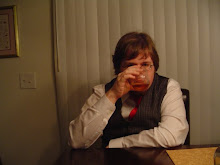But where this is heading is that I spent a couple years of my life listening to bands that tried desperately hard to push the envelope of rock and roll as far as they could, and Sunset Rubdown’s Random Spirit Lover blows them out of the water with an unbelievably casual grace and natural flair.
There’s a lot of influences swirling around inside this album, so, to try and give a general overview: The Cure comes to mind when Spencer Krug belts and yelps, there’s a lot of “Ashes to Ashes”-era Bowie in the beeping, discordant instrumentation, an Echo and the Bunnymen-style grandiosity and melodrama, a definite infusion of Barrett-era Pink Floyd in the music’s chaos and clang, and there’s King Crimson’s theatricality. And that’s just musically; the album is an intricate and intensely symbolic coming-of-age story that feels like a collaboration between James Joyce and Guillermo Del Toro.
Lyrically, Spencer Krug is one of those unbearable geniuses who is both a show-off and so incredibly talented that you know he deserves to show off. When, in “Magic vs. Midas,” the central character of the album experiences the first blush of sexuality, Krug’s line of “you drew up a list of your luckiest stars, as you made me familiar to you in the dark” manages to both make its subject incredibly clear and be a delightfully difficult turn of phrase to unpack. And when he raises the issue of trust, asking “Hey you with the gold, which you keep (or which keeps you) in place. Do you recoil from its jail house green and copper taste?...Was it magic or Midas that touched you? And by magic I mean trickery. And by Midas I mean faith,” there’s brilliance in both the essential metaphor, exploring the question of whether one of the figures in the song is knowingly buying into a false love, and in the sly, sarcastic way he seems to take the listener aside to explain it to them in the final two sentences.
The album is full of these little moments, the incredibly complex knots of words buried under the soaring keyboards and rattling guitars. When, under the wall of xylophones and sing-songy rhythm of “Up On Your Leopard, Upon the End Of Your Feral Days,” Krug chants that “You’re the one who ran in the wild, ‘cause you’re the one the wild called,” the repetitive simplicity of the lyrics paired with the insistent, driving melody from a perfect portrait of the need for youthful exuberance. In “For the Pier (and Dead Shimmering),” one of several songs that starts off quiet (incredibly quiet—just gentle chimes and Krug’s stammering whisper), when the narrator desperately tries to reassure himself that this terrifying plunge into adulthood is natural, Krug’s voice builds from a whisper to an operatic scream as he madly reassures himself that “it’s the reining and the predatory nature of the sky, and the ringing sound it makes as it’s burning out your eyes. It’s all right. It’s all right. It’s the speed of light and the speed of a year.” And in “The Taming of the Hands That Came Back to Life,” a song that explores that oh-so-lovely feeling of “I’m twenty years old, why am I still desperate and confused?,” the pounding, unrelenting drums couple with Krug’s gentle vocals for a truly chilling moment when the narrator simply does not get someone else’s problems, so completely engrossed is he in his creative works:
She said “My sails are flapping in the wind.”
I said “Can I use that in a song?”
She said “I mean the end begins!”
I said “I know… Can I use that too?”
Of course, the album’s climax occurs in the most intricate song of all, the sarcastic and clever “Trumpet Trumpet, Toot Toot!,” a song layered with more walls of sound than anything on the album so far, and ghostly wooing female vocals snaking through the whole piece. Krug finally drops the mask of his varied characters, admitting that he is a player in the work as well, though coyly asking you to figure out “Was I the leopard? Or the virgin? Or the child in a grown man’s beard, all out of place and hanging off his face by the time the audience cheered?”
If the album has any fault, it’s that it’s too complex: clocking in at well over an hour, it can be exhausting to follow all the way through, and it’s really easy to skip some of the middle tracks to get to the album’s finish. But it fits the cocky, eloquent nature of the lyrics and theme—it’s like how Tesla would only give speeches in front of a running Tesla coil, shooting sparks around the room, just to show that he could. And Krug himself recognizes this, asking at the album’s close: “why so many, many, many, violins?”




No comments:
Post a Comment